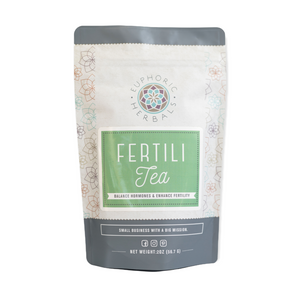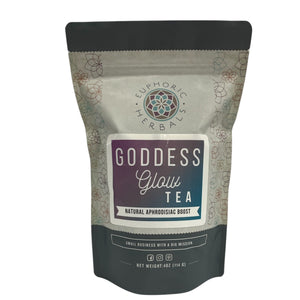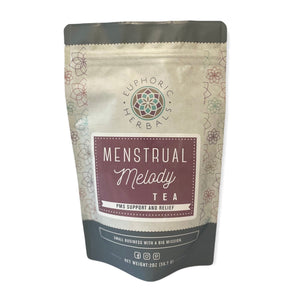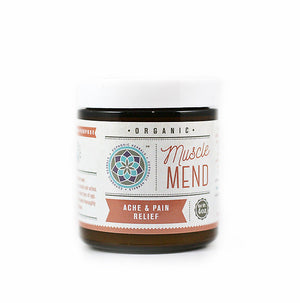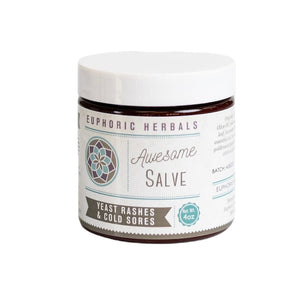Chances are good that you've heard of flax seeds, since they've become quite a popular health food. These tiny seeds really do pack a lot of nutrition, and flaxseed oil is loaded with similar benefits, especially for skin health.
The oil is not often used for cooking because it has a low smoke point. However, using it raw either internally or topically is highly beneficial for your skin, even though it doesn't get as much attention as other oils like coconut. The seeds are often used as a good source of fiber but have many more benefits as well.
Here's more about the health benefits of flaxseed oil and flax seeds, plus some tips for getting the most out of them.
All About Flax Seeds & Flaxseed Oil
Flax seeds, also known as linseeds, come from the flax plant (Linum usitatissimum). Flax is thought to be one of the oldest cultivated plants. The fibers of the plant are used to make linen yarn and fabric, while the seeds are harvested as a health food.
Flax plants are cultivated as an annual crop. They bloom with blue, pink, or white flowers and develop small fruits as well. Plants are harvested as they start turning yellow for fiber or when the seeds are mature. (1)
Flaxseed oil is made by grinding and pressing the ripe seeds to release the oils in them. Solvent extraction can be used to get more oil out of the seeds. Besides a health food, flaxseed oil is also used to make paints, linoleum, printing ink, and other products.
Flax seeds contain a lot of nutrition for their size. They are low in saturated fats and high in unsaturated fats. The seeds also contain nutrients like B vitamins, magnesium, folate, calcium, and iron. (2)
Benefits of Flax Seeds & Flaxseed Oil
High in Omega-3's

Both whole flax seeds and flaxseed oil are high in omega-3 fatty acids. They are often promoted as an alternative to fish and fish oil for vegans and vegetarians.
The type of omega-3 fatty acids in flax seeds is called alpha-linolenic acid (ALA). (3) Your body converts ALA to the active forms of omega-3: eicosapentaenoic acid (EPA) and docosahexaenoic acid (DHA).
Getting enough omega-3 in your diet is important for overall health because it plays a role in things like reducing inflammation, protecting heart health, and protecting your brain from aging. (4)
It's important to note that EPA and DHA are considered the most potent forms of omega-3. Even though your body does convert ALA into these two other forms, it's a very inefficient process. The recommended daily amount of ALA is between 1100-1600 mg. (5)
Aids Digestive Health
Flax seeds are known to help make your digestion more regular and aid mild constipation. This is mainly because they contain a high amount of dietary fiber, about 3 grams per tablespoon.
The soluble fiber in flax seeds slows and aids digestion and may also help cholesterol. The insoluble fiber is what makes stools softer and bulkier, which can prevent or treat constipation. (6)(7)
Not all people can take a large amount of fiber at once because it irritates their intestinal system. Flaxseed oil has similar benefits for digestion and can also help with diarrhea- all without any fiber content. Taking it daily can help with regularity and soothe an irritated digestive system. (8)
Supports Heart Health
There are several benefits to eating flax seeds or flaxseed oil for heart health. Overall, the high ALA content in flax has shown serious potential for reducing the risk of cardiovascular disease and death from heart problems. (9)
Flax seeds can also improve heart health by reducing bad (LDL) cholesterol levels and raising good (HDL) cholesterol levels. Several studies have shown that flax seeds and flaxseed powder can both do this, likely because of their high fiber content. (10)
Flaxseed oil and flax seeds also have the ability to lower blood pressure. Having high blood pressure puts you at greater risk for heart attack and stroke. Taking flax regularly can gradually reduce blood pressure, likely from the omega-3 content. (11)(12)
Good for Sensitive & Irritated Skin
Taking flaxseed oil as a supplement or using it topically on your skin can help with skin sensitivity and irritation. It may even be superior to other oils where sensitive skin is concerned. (13)
Although not yet as popular as other skincare oils, flaxseed is a top choice if you often react to common skincare ingredients or have a skin condition like eczema. You can safely apply the oil straight to irritated skin or use it to make homemade skincare products.
If you have dry and sensitive skin, try this Calm Cream made with shea butter and flaxseed, coconut, and almond oils.
Promotes Healthy, Hydrated Skin

Like many other plant-based oils, the fatty acids in flaxseed help to hydrate skin and keep moisture locked in. The same study that found flaxseed oil helpful for sensitive skin also showed that it improved hydration and smoothness. (14)
You can use a small amount daily as a moisturizer after washing your face or make flaxseed oil a part of your daily diet to get its benefits from the inside out.
Getting the Most Benefits Out of Flaxseed Oil & Flax Seeds
There are a couple tips you should know about to get the most out of flax products.
To get the most benefit out of flax seeds you should eat ground ones, not whole. Whole flax seeds are too tough for your body to digest and will have minimal benefits. Grinding them breaks up the tough outer shell and allows your body to digest them.
The best way to do this is to buy whole flax seeds and grind them in a coffee grinder or something similar. You can also buy powdered or ground flax seeds, but they may go rancid and lose their health benefits before you have time to eat them.
When choosing a flaxseed oil, look for one that's cold-pressed and preferably organic. This keeps the maximum amount of health benefits available in the flaxseed oil.
Flaxseed oil should not be used for high heat cooking and may lose some beneficial properties when heated. It tends to go rancid fairly quickly, so store it in your refrigerator in a dark-colored bottle.
Precautions and Side Effects
The most common side effect of consuming flax seeds is digestive upset, nausea, bloating, gas, and/or diarrhea. The best approach is to start out with a small amount of flax and gradually increase to let your body adjust. You should also always increase your water intake when adding in fiber supplements.
Flaxseed oil rarely has side effects but can occasionally cause an allergic reaction. High internal doses can cause diarrhea or loose stools. Take it slow and do a patch test on your skin before applying the oil to large areas.
Flax for Health
Flax is a very versatile plant, giving us a fiber for clothing, a health food, and a healthy oil. You've probably known a little about the health benefits of flax, but now you know why it's gained such popularity.
Try it to soothe sensitive skin, improve your digestion, support heart health, or to get more ALA in your diet!






















































